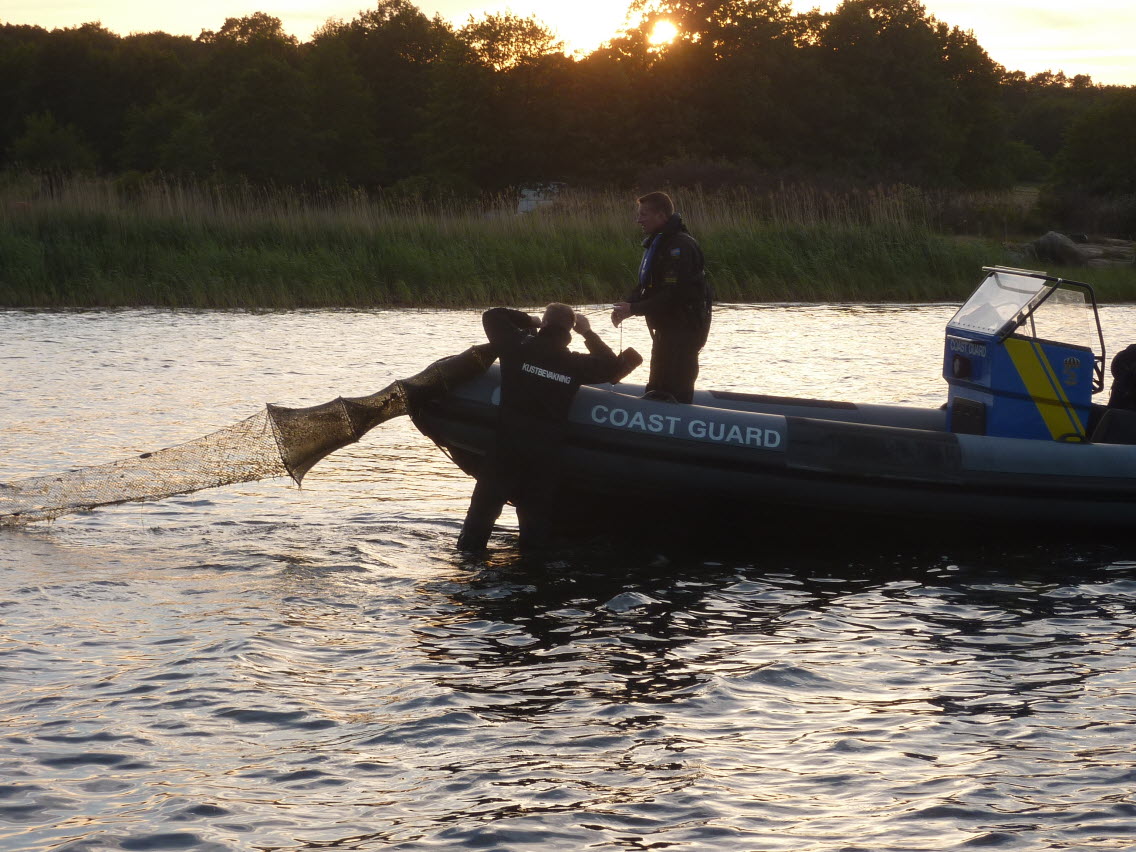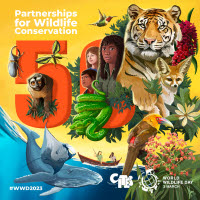Working together for the world's animals and plants
14 March 2023 16:23

The 3 March is World Wildlife Day. It is a United Nations International day to celebrate all the world's wild animals and plants and the contribution that they make to our planet. Unsustainable and illegal trade with wild species is one of the largest threats to biodiversity and the illegal trade is valued at SEK billions every year. The Swedish Coast Guard are working to protect biodiversity both on and below the surface.
The theme of this year's World Wildlife Day is partnerships for wildlife conservation. The CITES convention (Convention of International Trade in Endangered Species) is an international partnership and agreement to help protect endangered animals and plants by ensuring that the international trade is legal and sustainable.
Government authorities working together
In Sweden there is collaboration between the Swedish Coast Guard, the Swedish Environment Agency, the Swedish Board of Agriculture, the Swedish Agency for Marine and Water Management, the Swedish County Administrative Boards, the Swedish Police, Swedish Customs and the Swedish Prosecution Authority to prevent unsustainable and illegal trade and to protect biodiversity. The Swedish Board of Agriculture heads the collaborative group NOGA - national operative group for species protection violations.
"The Swedish Coast Guard has law enforcement powers regarding parts of the CITES-legislation, in accordance with the Coast Guard Act. From a wider perspective the Swedish Coast Guard contributes to species protection through a range of measures, for example responding to oil spills and leakages at sea and fishing inspections," says Fredrik Simonson business developer at the Unit of Method Development Sea Surveillance.
A species that the Swedish Coast Guard often comes into contact with is the eel. The eel is a CITES-listed species and is therefore protected by law with regards to trade. The fishing of eels without an eel-fishing permit, with prohibited methods or during prohibited periods etc., amounts to a violation of the Fishing Act rather than a violation of the Species Protection Ordinance.
"Regardless of if the eel was caught in a legal way or not, subsequent acquisition or transportation in connection with commercial trade can still be a species protection violation according to CITES-legislation. A legitimate background must be shown for both the seller and the buyer," says Fredrik.
Convictions for species protection violations
A couple of years ago, the Swedish Coast Guard initiated a case where a legitimate background for the eels in question could not be shown, which led to convictions for species protection violations. Confiscation of illegal eel fishing equipment where the owner cannot be traced is the type of eel-related work most commonly conducted by the authority.
"Other species that can be relevant for the Swedish Coast Guard's work with species protection are orchids and birds of prey. As the Swedish Coast Guard mainly works at sea, it is only natural that the authority's focus is more on the prevention of species being taken from their natural habitat rather than intervention at a later stage, for example in trade. The Swedish Coast Guard's work is an important part of protecting endangered animals and plants in Sweden," says Fredrik Simonson.
Facts about World Wildlife Day
In 2013 the UN decided that 3 March would be World Wildlife Day, the same date that 40 years earlier in 1973 the CITES convention, regarding trade with endangered species, was agreed upon. Sweden signed the convention in 1974 and it entered into force in 1975 when 10 countries had signed it.
CITES along with the Convention on Biological Diversity and The Convention on Migratory Species (CMS) also known as the Bonn Convention, complement each other in different ways. Sweden collaborates in international work and works actively to implement agreed measures on a national level
Changed 14 March 2023 16:24

